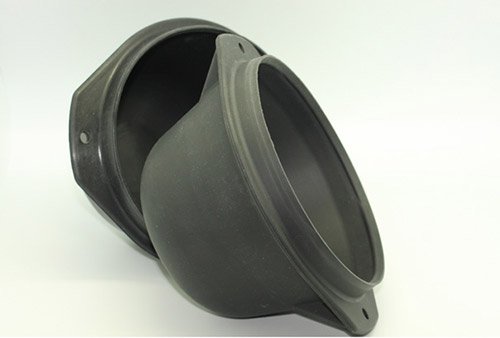
How To Choose a Suitable Rubber Molding Process
Choosing a suitable rubber molding process can improve the quality and performance of a product. Clark Rubber & Plastic helps clients choose a rubber molding process that will promote the integrity of their products. Here are some tips for choosing the proper molding process.
Understand Your Project Requirements
Defining your project’s needs can help you choose the right rubber molding process. Projects may vary in complexity, volume, or material specifications, necessitating different production methods. If you need parts with tight tolerances, injection molding may be the most suitable option. Compression molding may be the right choice if you need large, simple parts. At Clark Rubber & Plastic, our expertswill analyze your project requirements and goals to recommend a process that will help you achieve your desired results.
Evaluate Different Molding Processes
Some of the top rubber molding processes include injection, compression, and transfer molding. Injection molding helps manufacturers produce large quantities of products with complex parts and tight tolerances. Compression molding is suitable for creating large parts and lower production volumes. These characteristics make compression molding a more cost-effective and versatile option for some industries.
Transfer molding combines injection molding and compression molding. This results in a balance of precision production and cost-effectiveness. Some rubber materials may be better suited for specific molding processes. Clark Rubber & Plastic’s team understands each material type and molding process, allowing us to recommend the right process and material for your needs. Our facility also has advanced injection presses that can handle projects of various sizes.
Determine Material Requirements
The type of rubber material that you select impacts the performance of your final product. Clark Rubber & Plastic offers a variety of rubber materials, like natural rubber, neoprene, nitrile, and EPDM. Natural rubber is elastic and durable. This makes it an ideal choice for components used by automotive industries. Neoprene is resistant to oil, chemicals, and weathering. These characteristics make neoprene suitable for products intended for outdoor use. Nitrile is resistant to oils and fuels, so it can be used for parts in the automotive and aerospace industries that are exposed to oil and fuel. Dense and foam forms of EPDM work for weather-resistant applications, like gaskets and seals. Our team helps clients confirm that their material selection and final product will meet their industry’s quality and safety requirements.
Prioritize Prototyping and Testing
Prototyping and testing your products before production can help confirm that your chosen molding method meets your project specifications and performance requirements. Refining your prototype allows you to identify and remove design flaws and try more efficient molding techniques. Clark Rubber & Plastic offers prototyping services to help clients design and produce effective products.
Partner With a Rubber Molding Manufacturer
Choosing a suitable rubber molding process can enhance your product’s quality and help you stay within your manufacturing budget. Partnering with an experienced manufacturer helps you achieve desired results with less trial and error. Clark Rubber & Plastic offers high-quality, custom rubber molding services and raw materials for small-batch and large-production projects. Contact Clark Rubber & Plastic today to learn more about how we can partner with you for your next project.
